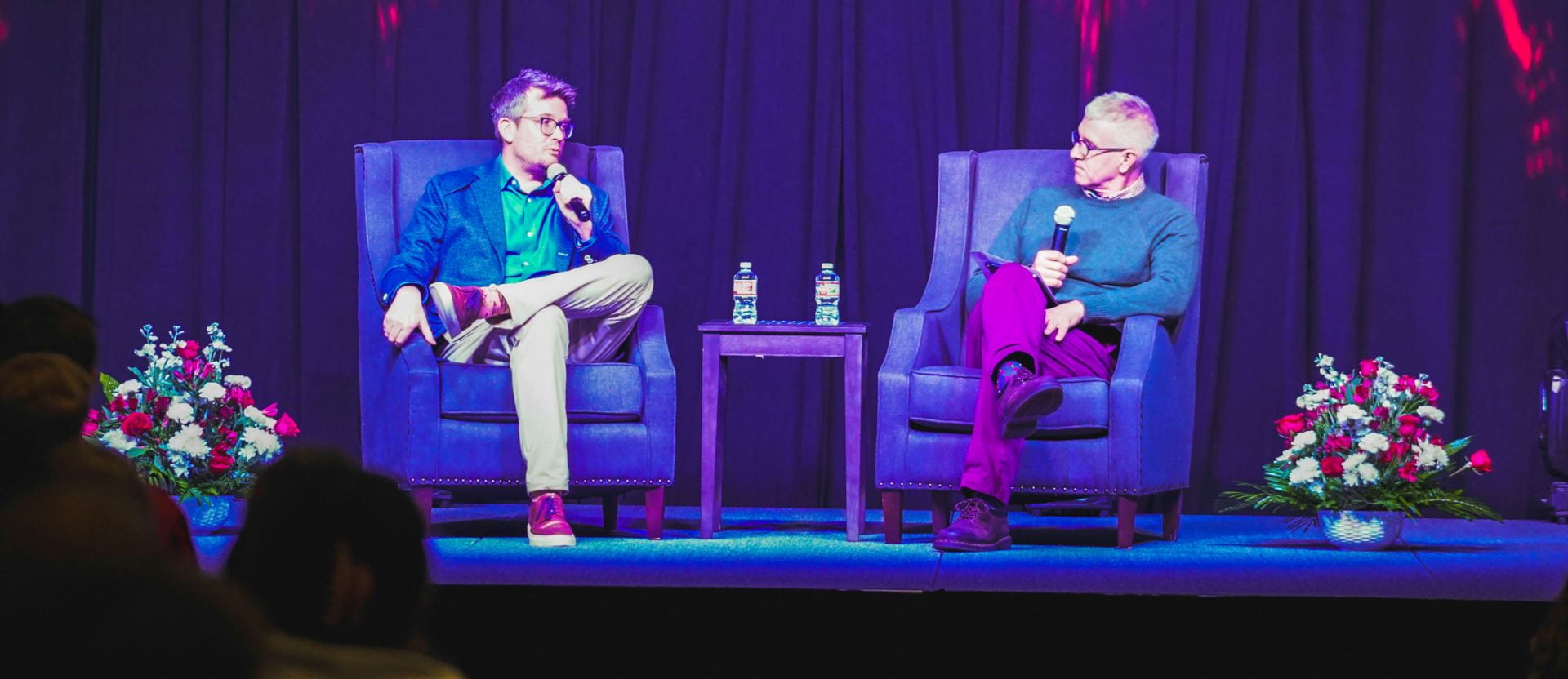
On the evening of November 9th, 2023, Arkansas’ ever-changing weather patterns didn’t keep University of Arkansas Students (and the public) from braving the rainy evening to come see the distinguished lecture from John Green.
As Adele played over the loudspeakers, enthusiastic attendees filed in and filled the seats of the Fayetteville Town center for the semester’s first distinguished lecturer of the Fall 2023 semester.
Green is a New York Times bestselling author of books popular in the Young Adult genre including Looking for Alaska, Turtles All the Way Down, Paper Towns, An Abundance of Katherines and The Fault in Our Stars, the last of which became a major motion picture in 2014.
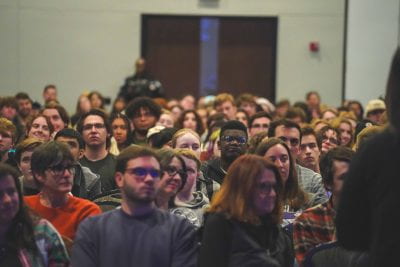 The lecture was moderated by Dr. Sean Connors, whose doctoral dissertation (funded in part by a grant from the Assembly on Literature for Adolescents), sought to understand how adolescent readers conceive of graphic novels as a form of reading material and how they construct meaning in their transactions with multimodal literary texts. Connors teaches courses on young adult literature and graphic novels at the U of A.
The lecture was moderated by Dr. Sean Connors, whose doctoral dissertation (funded in part by a grant from the Assembly on Literature for Adolescents), sought to understand how adolescent readers conceive of graphic novels as a form of reading material and how they construct meaning in their transactions with multimodal literary texts. Connors teaches courses on young adult literature and graphic novels at the U of A.
The tone and theme of the nights event was set early on as the two men bonded over mutual passion and connection. They immersed themselves in how Green’s books often delve into the inner worlds of young adults, encouraging readers to empathize with their struggles and experiences.
“I don’t know what’s going on side of you” Green said on as he described the complexities of human introspection and how we view our lives compared to the richness and problems as others.
“I wanted to understand what the hell was happening inside of me and I don’t know what it’s like to be you which is one of the weirdest things about being a person,” Green said as he described the complexities of human introspection. “It’s like we’re stuck the entire time we’re here inside of this one Consciousness looking out of this one set of eyes and we have no idea what it’s like to be someone else and we almost have to guess that other people’s lives are as rich and complex as our own.”
Trying to understand our own struggles may be tough, and at times even unbearable; but to try and understand the struggles of another, well, can seem impossible. At a young age though, John Green set out to do just that. Burdened with an empathetic and curious mind from the beginning, he set out to discover how and even if it was possible to truly put ourselves in someone else’s shoes.
Step one? To major in religious studies at divinity school. “Religion is kind of the classic way that we’ve approached a lot of those questions (concerning how to understand suffering),” he said. “It’s not necessarily the main way we approach those questions now, but it has been for a lot of times, and it still is for a lot of people and so I wanted to look at that.”
That lasted 7 months. During this time, he worked with terminally ill children at the local hospital where he interacted with people who were truly having the worst days of their life.
“I realized that all of these fancy theological ideas that I had from reading lots of theology books didn’t really matter much when it came time to be with kids who were dying, or when it came time to be with families who had just lose their children,” described Green. “All of that complicated theology sort of fell by the wayside for me but my experience was that it fell apart and all there was, was loss and pain.”
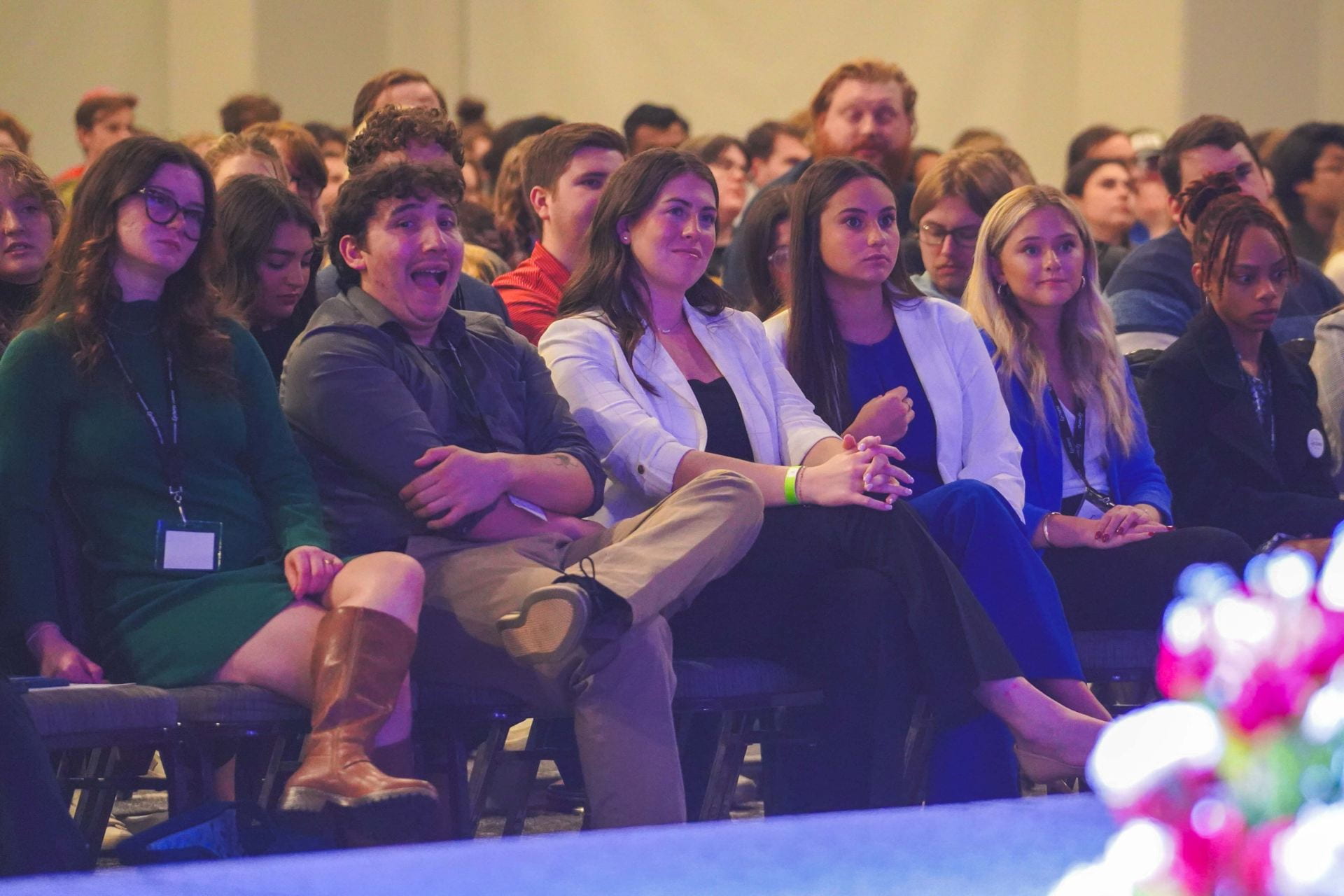
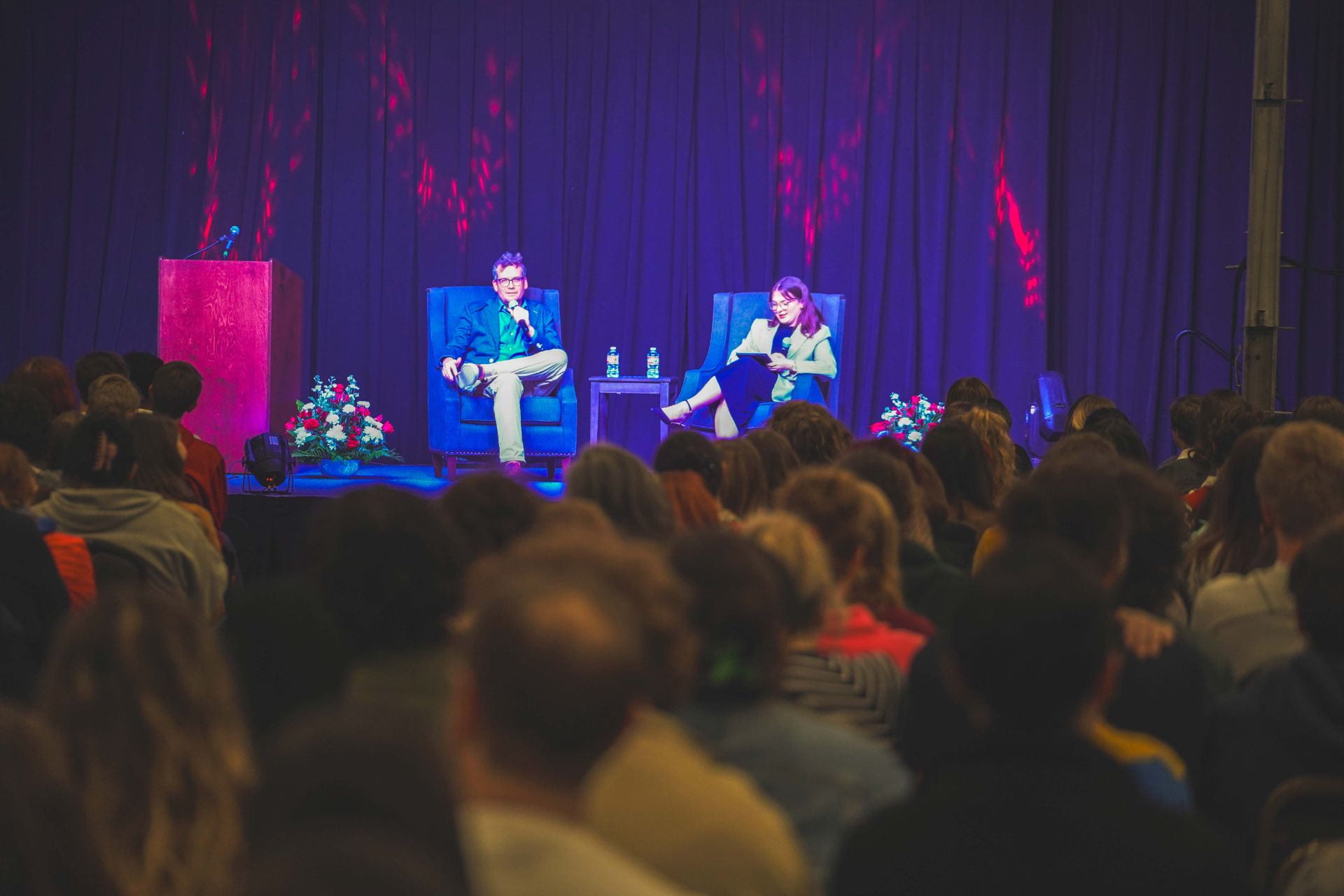
After dropping out, Green began to work as an office temp at a Magazine. This is where the story of John Green, the Author starts… he would spend the next ten years writing The Fault In Our Stars, as a way of trying to understand some of the ways through that religious experience.
Green goes on to quote Emily Dickens, “One of her great lines is, ‘we should tell the truth – the whole truth but tell it indirectly, in a circuitous and round-the-houses fashion.’ I think that’s so true and so for me writing fiction is a way at coming at those days in the hospital but from the side a little bit um which makes it more bearable for me.”
Inspired by the books he read in high school, books that asked the questions about life’s deep questions, Green knew he wanted to do two things in this life, to write and to understand what was going on inside him.
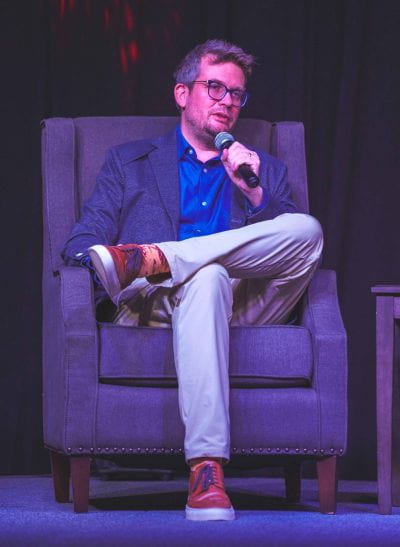 “When you’re doing stuff for the first time it’s so intense, it so deep, it’s so real, he said, questions around hope and suffering, they aren’t merely philosophical they’re essential to your survival and I love that.”
“When you’re doing stuff for the first time it’s so intense, it so deep, it’s so real, he said, questions around hope and suffering, they aren’t merely philosophical they’re essential to your survival and I love that.”
This is one of the reasons he enjoys writing about young people and their experiences in the world. “The first time I fell in love I thought that like I had discovered something that no human being had ever experienced and then the second time I fell in love I was like this is great… this is cool this is like the first time. Young people don’t have that context that sort of muffles the experience.”
As Green and the moderator transitioned to the topic of book banning, Green began to talk about the conundrum that is the power of the human race “We as a species decide what lives and dies but we still feel powerless. Consciousness is hard and it’s easy to focus on the ways we suck but we can still be wonderful.”
This topic of discussion became powerful within itself.
“I think the real for Protagonists of the story are experts called teachers and Librarians who we train and pay but whose ability to do their fundamental work is interrupted by a system we have built to then come in and say like not only do I not want my kid reading this book. I don’t think any kid should be allowed to read this book!” Green heatedly exclaims. “To me this violates the covenant that we’ve all made together.”
Applause from the audience erupts in admiration and agreement.
“The problem I have with book banning,” Green continues, “is that the truth is almost all those books are by or about either people of color or they’re about LGBTQ+ kids and that’s just the reality and it’s important to be able to see yourself in books.”
More applause.
A final question from the Moderator, “Are you hopeful about the future?”
“I’m really worried right now,” Green responds. “Hope is prerequisite for survival, so I have to be hopeful but it’s so hard to be young. You (young people) don’t have a lot of safety at times, no stability in relationships, going through things for the first time… but I see a willingness in young people to listen to each other and I see a lot of hope in you (as he gestures to the students in the audience) and that makes me feel really hopeful.”
Green has sold more than 24 million copies of his books in 55 languages across the world. Though most of his books focus on fictional teens’ “coming of age,” his most recent book, The Anthropocene Reviewed, was developed from his podcast of the same name and examines different aspects of the world we live in today.
His lecture at the University of Arkansas was full of passion and empathy. Green inspired the crowd to be compassionate and to consider others and the world that every other person experiences with their own eyes every day. We are individuals, yes, but we are a people, one people under the same sky and we must come together – to learn, to love, and to grow.
Photos: Shane White
